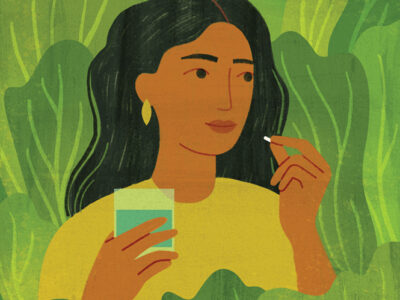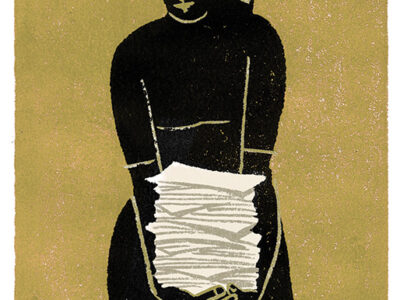Dr. Maryanne McGuckin, GEd’79, GrD’81, senior researcher at the University Medical Center, has some advice for patients who think their doctors or nurses may not have washed their hands: Ask them to wash up. Over the course of a six-week program, McGuckin and her colleagues had 441 patients in four New Jersey hospitals ask their health-care workers if they had washed their hands — and, if not, to request that they do so. As a result, she was able to increase the total number of hand-washings in a 24-hour shift from two to 12, which translates to a 34 percent increase. McGuckin based her findings on the amount of liquid soap used as well as on follow-up interviews with patients.
“Twelve is not where we should be,” she says, “but it’s better than two.”
Patients uncomfortable about quizzing their doctors and nurses
could just stick a “weeble” on their hospital gown; the fuzzy blue
animals carried banners saying: “Did you wash your hands?” McGuckin
found that while 90 percent of the patients surveyed had asked their
nurses if they had washed their hands, only 32 percent had asked their
doctors.
According to the Centers for Disease Control and Prevention, some
19,000 Americans die each year from hospital-acquired infections, and
another 56,000 acquired infections that contributed to their deaths from
other illnesses. The program, says McGuckin, is thus a “win-win
proposition, because the patient’s risk of acquiring [an] infection is
reduced and, over time, could impact on the hospital’s infection rates.
“This isn’t rocket science,” she adds, “but it’s going to have a real impact.”




